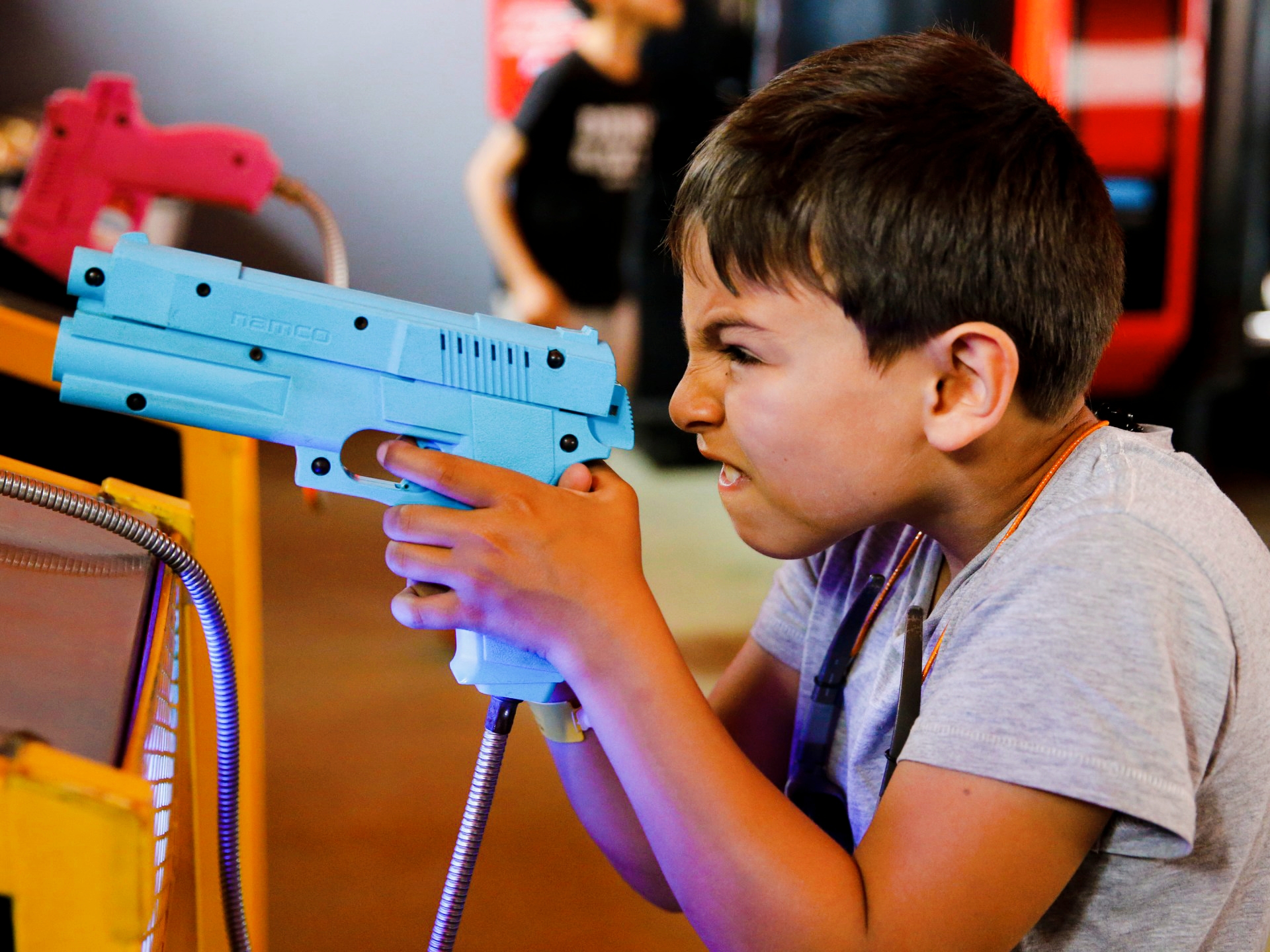Horrific Crime in Egypt: Child Tears Apart Classmate Due to Video Game

In a chilling incident that reveals a dark side lurking around children inside homes, the city of Ismailia, Egypt witnessed a horrific crime committed by a 13-year-old boy, who brutally killed his schoolmate, inspired by a violent video game.
The crime that shook the Egyptian street is not just an accidental incident, but a frightening alarm about the dangers of digital content that children are exposed to, and how it can transform into deadly real-life behavior in the absence of supervision and guidance.
* Shocking Crime Details
The incident began when the Assistant Minister of Interior and the Director of Security in Ismailia received a notification from the head of the police station, indicating that a child's body had been found torn to pieces near a branch of a famous shopping mall in the New Station neighborhood of Ismailia.
After a police force arrived at the scene, the area was cordoned off and an extensive investigation was opened.
Within hours, investigations revealed that the perpetrator was a 13-year-old boy, who was a classmate of the victim.
The perpetrator lured his classmate to his house and struck him on the head with a wooden stick until he breathed his last.
After committing his crime, he used a sharp tool to dismember the body into small pieces, then placed them in plastic bags and disposed of them next to the mall in an attempt to hide the crime's traces.
The remains of the body were transferred to the refrigerator of the Suez Canal University Hospital, under the supervision of the investigation authorities.
* The Bigger Shock... A Video Game Behind the Crime!
Investigations later revealed that the perpetrator admitted to drawing details of the murder from a violent video game he plays online, which simulates scenes of blood, killing, and dismemberment in a shockingly realistic manner, to the point where he blurred the line between reality and fiction, and between the game and life.
Security and electronic sources confirmed that some of these games have turned into tools of "psychological programming" for children and teenagers, pushing them to adopt aggressive behaviors and encouraging them to kill and commit violence in exchange for points and virtual rewards.
* Experts: Games Have Turned into Schools for Teaching Crime
Commenting on the incident, Dr. Mohamed Mohsen Ramadan, head of the Artificial Intelligence and Cybersecurity Unit at the Arab Center for Research and Studies, stated that the crime revealed a serious flaw in family supervision and a lack of awareness of the digital dangers that children face.
He explained that modern video games are no longer just a means of entertainment, but have become integrated systems of behavioral conditioning that reprogram the brain and stimulate reward and violence centers.
Ramadan added that many of these games rely on the principle of "killing for points," which creates a mental association between violence and success in the child, in the absence of family guidance, making the game transform into real behavior.
* Covert Messages and Deadly Challenges Within Games
Ramadan continued that some of these games contain covert content promoting "death challenges" or self-harm, marketed as heroic adventures.
These games also provide secret chat rooms that bring children together with unknown adult individuals who may lure them and influence their minds.
He pointed out that many of these games are available for free and appear innocent on the surface, but contain smart recommendation algorithms that gradually lead the child to darker and more dangerous content without their awareness.
* A Record of Crimes Linked to Digital Games
Major General Abu Bakr Abdel Karim, former Assistant Minister of Interior for Media and Relations, clarified that this is not the first crime of this type, pointing to several precedents:
_ "The Blue Whale Challenge" which led to the suicide of dozens of teenagers around the world.
_ "Momo Challenge" which drove children to harm themselves due to a fictional character within the game.
_ The incident of the Alexandria child in 2022 who attempted to kill his classmate using sharp tools after a quarrel, influenced by a famous fighting game.
He confirmed that these recurring incidents are not coincidences, but reflect a serious educational, technological, and social malfunction that threatens family and community security.
* What Can Families Do to Protect Their Children?
Major General Abdel Karim provided a set of important recommendations:
1 _ Monitor content before it reaches the child, and do not rely solely on the game's name.
2 _Use parental control tools to block violent content.
3 _Share some playtime with children to understand what they are exposed to within these virtual worlds.
4 _Set time limits for using electronic devices and do not leave them as a continuous calming tool.
5 _Monitor influencers and videos within games, as some promote toxic and dangerous behaviors.
He warned that these games have become "schools for teaching violence," starting with a "game" and ending with a tragic crime.
* When Digital Imagination Turns into a Real Nightmare
The case of the Ismailia child is not just an individual incident;
it is the result of accumulations of digital and familial neglect, and a complete crime that emerged from the screen of a virtual game into reality, turning a child into a killer and an innocent victim into torn pieces.
Should we wait for another crime? Or should we act to protect an entire generation from digital savagery?